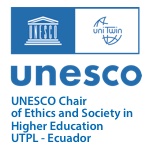True, Good and Beautiful
Abstract
Among educated people (especially in France and Britain and Germany, too) there was an attempt to find a rival source of meaning to the religious—to find that rival source of meaning in art because for various reasons, art struck people as having a different status from science. Science was a threat to religion. That’s true, because it was undermining the old explanation of things in which God took such an important place. But art seemed to represent a different way of looking at the world from science, one which preserved the mystery of things and didn’t undo the mystery. Since the mystery was so important, why not look to art as a source of meaning?
Downloads
References
Wilde, Oscar (1899). The Importance of Being Earnest: A Trivial Comedy for Serious People. L. Smithers.
Copyright (c) 2022 © Analysis

This work is licensed under a Creative Commons Attribution-NonCommercial-NoDerivatives 4.0 International License.








